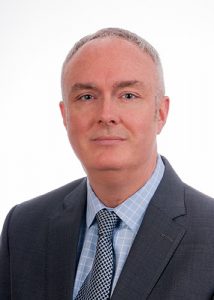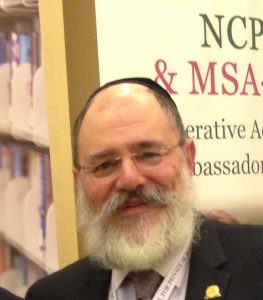NCPSA Newsletter
Ed-Lines
Vol. 1, Issue 1
News and Events for Private School Educators and Parents from the National Council of Private School Accreditation
A Message From Our Executive Director
by Clayton J. Petry
 Welcome to the first edition of the 2023 NCPSA newsletter – and the 30th anniversary of the founding of the National Council for Private School Accreditation (NCPSA)!
Welcome to the first edition of the 2023 NCPSA newsletter – and the 30th anniversary of the founding of the National Council for Private School Accreditation (NCPSA)!
In 1992, several private school organizations which accredited their member schools began exploring the possibility of developing a national entity which would essentially serve as an “accrediting association of private school accrediting agencies.” In September 1993, these organizations agreed to formalize the association as the National Council for Private School Accreditation (NCPSA), an organization which is recognized by state and federal education agencies for its commitment to excellence in education.
Today, NCPSA members represent a diverse group of organizations which are responsible for accrediting nearly 15,000 schools worldwide. NCPSA serves as a valuable resource to these organizations – a place where they can share best practices and seek advice from their peers. Through NCPSA, members learn about relevant educational issues and can share their thoughts about incorporating new requirements into their own accreditation practices.
NCPSA members are diverse in nearly every way imaginable – they differ in the type of member schools, in the size of their membership; in their regional, national, or international service area; in their underlying philosophy of education; and even in their approach to an accreditation study. Yet, NCPSA members are accrediting organizations that share a common mission: To improve the quality of private school education through the process of accreditation and peer review.
We are proud to be celebrating our 30th anniversary as an organization dedicated to excellence in private education. Through the application of rigorous standards and high expectations, we are improving the quality of private school education every day. Thank you for being an important part of our journey!
Rohr Bais Chaya Academy: Success at the Intersection of Innovation and Achievement
by NCPSA
 The Rohr Bais Chaya Academy is an accredited private high school for girls in grades 9-12 located in Broward County Florida. Mrs. Tanya Rubin, the principal at the Academy, shared her insights about the success of the Academy, noting that they are always looking for better ways to teach and to learn.
The Rohr Bais Chaya Academy is an accredited private high school for girls in grades 9-12 located in Broward County Florida. Mrs. Tanya Rubin, the principal at the Academy, shared her insights about the success of the Academy, noting that they are always looking for better ways to teach and to learn.
“The teachers at the Academy are really encouraged to use a growth mindset and to try new ideas. They strive to reach every student, and to personalize learning.” Mrs. Rubin gave an example of a student who was struggling with a learning disability in math. The student was given the opportunity to operate the school vending machine. With support and encouragement from her teachers, this student was soon preparing profit and loss statements and calculating the ROI.
The Academy is fully accredited by three agencies – The National Accreditation Board, Middle States Association, and The Association of Independent Schools of Florida. During a site visit, the report from the National Accreditation Peer Review stated that “Discussions with the students would lead one to believe that the “out of the box” things evident were not an anomaly but the rule. Teachers took pains to come at a number of subjects from different angles and approaches.”
The Peer Review Report also acknowledged the importance placed on individualizing education at the Academy. “The faculty and staff clearly serve to the strengths and the needs of the individual students so that continuous improvement takes place, not only academically but within the whole gestalt of the student.”
“Preparing for accreditation helps us to evaluate our progress in a robust way,” said Mrs. Rubin. Accreditation is “a way to study our results compared to our goals and to celebrate success.”
NCPSA congratulates the Rohr Bais Chaya Academy on their achievements!
Want to learn more? https://www.baischaya.com
Successful Children Become Leaders
by NCPSA
 “What can I do to make this child more successful?”
“What can I do to make this child more successful?”
Every teacher and parent wonders what they can do to help their student succeed in life. If this is a question that haunts you regularly, then a recent article published by the Harvard Business School has some interesting answers. The School recently surveyed over 1,500 executives from 91 different countries to discover what qualities make an outstanding leader. Their findings may surprise you.
1) Encourage students to fix problems – particularly a problem with multiple solutions, and one that requires them to think more deeply and creatively. Even young elementary students can learn to creatively apply solutions to thorny problems.
2) Give them courage and confidence to tackle big, real-world problems. Homelessness, environmental pollution, poverty, food insecurity – the list is long. Students can work to provide real solutions at the local level and receive recognition from their community.
3) Resist the temptation to make choices for students. Rather, teach them to evaluate the risks and rewards of their decisions.
Want to know more? https://hbswk.hbs.edu/item/six-unexpected-traits-leaders-need-in-the-digital-era
Accreditation Through the Looking Glass
by Ash Pugh
 I took some time away this fall to engage in some professional development. Normally, when I decide on PD, I reflect on my skills and abilities, identify a specific area that needs improvement, and set a challenging, yet achievable learning goal for myself. It’s a logical, sensible, and structured approach to learning. You probably do much the same thing.
I took some time away this fall to engage in some professional development. Normally, when I decide on PD, I reflect on my skills and abilities, identify a specific area that needs improvement, and set a challenging, yet achievable learning goal for myself. It’s a logical, sensible, and structured approach to learning. You probably do much the same thing.
This fall I did something different. On reflection, not only was it different, but I believe it may be the most valuable professional development I’ve taken as an education practitioner;
I joined an accreditation peer review team. Not for the first time, and certainly not for the last.
There are many differing opinions on the benefits of accreditation. I’ve heard dozens of them from educators, administrators, and parents. I have given as many myself, not only through the lens of an educator, but as an accreditation commissioner and policy chair, a school services provider, and in my work with various child safeguarding groups. With the myriad of opinions I’ve heard, no one has stated the value of accreditation so clearly as our team chair at the end of our recent visit.
The team visit is one component of the lengthy accreditation process. It provides the opportunity to compare the schools’ extensive self-study with what is observed in practice. At the end of a multi-day whirlwind of interviews, questioning, meetings, and observations, the team chair delivers a verbal report to the school’s accreditation team.
During the verbal report at this particular visit, our team chair took an interesting approach to provide some reprieve from what was a stressful time for the school’s leadership team. He said he wanted to share a passage from Lewis Carroll’s Alice in Wonderland whereupon Alice encounters the Cheshire cat. My team members were as surprised as the school’s team.
“Would you tell me, please, which way I ought to go from here?” Alice asked.
“That depends a good deal on where you want to get to,” said the cat.
“I don’t much know or care where….” said Alice.
“Then it doesn’t matter which way you go,” said the cat.
He paused for a beat and continued; “This process of accreditation is the conversation of who you are as a school. It is the dynamic process of reflecting, re-evaluating, and refining not only who you are but also where you want to go.”
The clearest statement I have ever seen on the value of accreditation.
It’s also why joining an accreditation team is such valuable professional development for us as education practitioners. It serves to ground us in the ‘why’ of education. It pulls our heads out of the sand, takes us away from the monotonous metrics and minutiae of our day-to-day, and calls us to sit and ask the core questions as critical friends.
I’ve been fortunate enough to visit and work with schools around the world. Schools with different linguistic, ethnic, faith, and curricular groundings. All with varying racial, cultural, and socio-economic makeups. Each with a unique history of colonialism – colonized, colonizer, or both. Large multi-campus and multi-curricula behemoths to tiny community schools servicing a dozen families. The intersection of each of these differentiators creates innumerable combinations of school types. Truly, no two schools are the same.
What is the same are the core questions which define the value of accreditation for their particular context;
‘Who are we?’
‘Where do we want to go?’
The benefit of working with a school as they navigate these essential questions is two-fold. It provides them with the necessary outside scrutiny to avoid the pitfalls of confirmation bias as they focus on school improvement. Second, visiting team members gain a renewed perspective on the questions needed to ensure their organizations are centered on their purpose.
I see joining an accreditation team as professional development, but given the benefits it creates for education as a whole – you could call it development for our profession.
Ash Pugh is the CEO and Founder of a company that is an accredited education service provider, and a former member of the Middle States Board of Directors.
My View
by Rabbi Nochem Kaplan
 One of the least understood characteristics of American accreditation is that the process percolates from the bottom up rather than trickles down from the top.
One of the least understood characteristics of American accreditation is that the process percolates from the bottom up rather than trickles down from the top.
The core of an accreditation protocol is the self-study, an honest introspective look at all the functions of the school. It is not the school administration that does the self-study rather a representative team of teachers, parents and the community that governs the process and garners input from all the stakeholders of the school.
Teacher input is particularly important to the self-study process. What is expected in a successful accreditation protocol is that teachers cooperate in an evaluation of the curriculum, to see where it is effective and where not, what is essential to the objectives and what is superfluous. Teachers who are properly involved in an accreditation process are the ones to decide the practicality of the courses they teach. Do the students achieve mastery of the required skills? Will they be prepared for the next course? How does it all fit with the school’s educational objectives? Whom better to turn to than the teachers who actually teach children?
Meaningful change can only happen if the classroom teachers can own the program and breathe reality into it. When curricula percolate from teachers to administrators and the needs and requirements of the student come first, the product has to be a better one. That’s what the American accreditation model is all about.
Rabbi Kaplan is National Director, Merkos Chinuch Office, and Director and Chair of the National Accreditation Board of Merkos L’Inyonei Chinuch.
My View features unique voices from the NCPSA membership. We would love to hear from you! If you are interested in submitting an article for the NCPSA Ed-Line, please contact offices@ncpsa.org.

